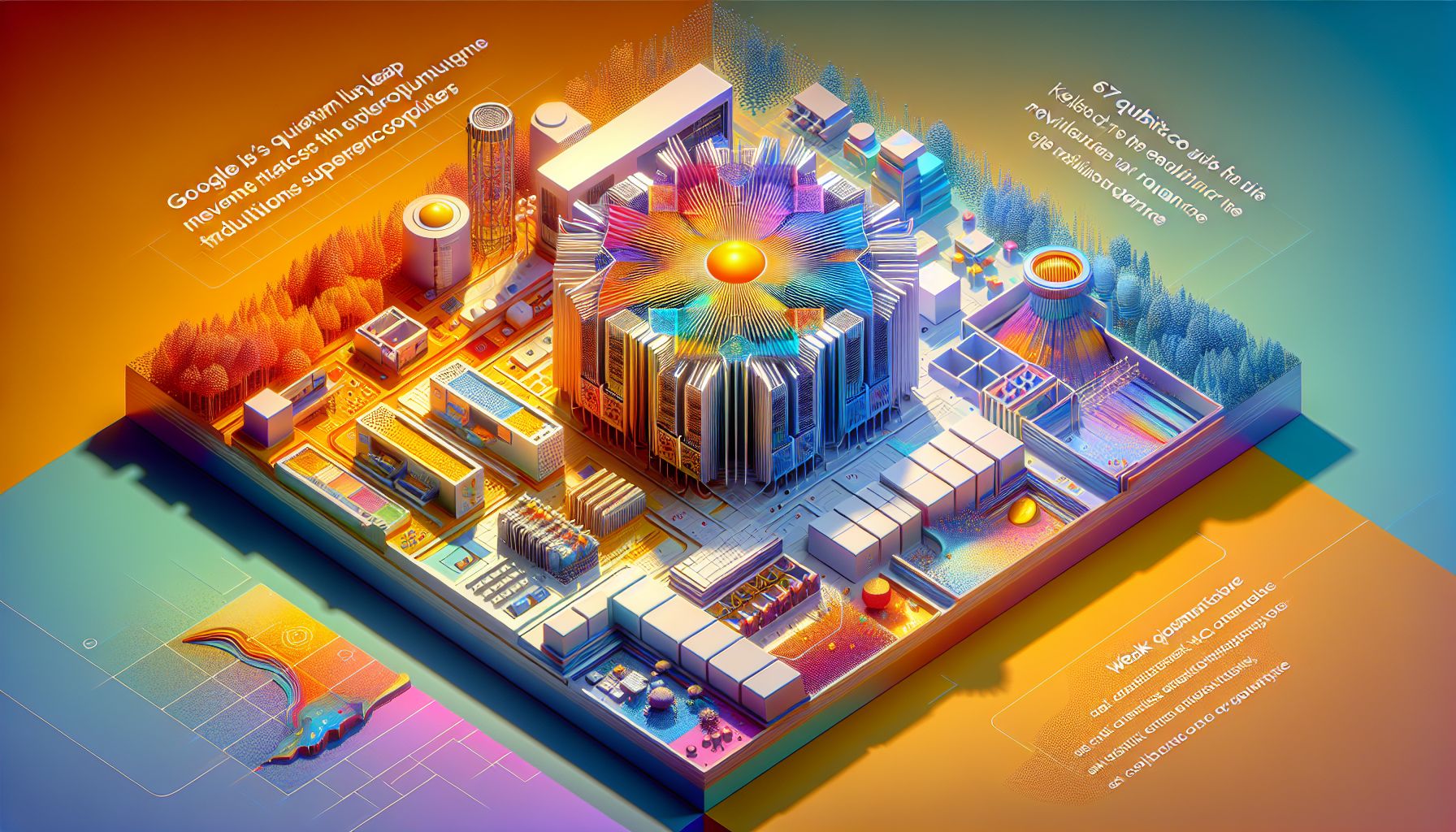Google's Quantum Leap: Sycamore Chip Outpaces Supercomputers

Mountain View, Friday, 11 October 2024.
Google’s 67-qubit Sycamore quantum processor demonstrates superior performance over classical supercomputers in specific tasks. Researchers identified a ‘weak noise phase’ where quantum computers maintain complexity, potentially revolutionizing fields from finance to materials science.
Achieving Quantum Supremacy
Google’s Sycamore quantum chip represents a monumental leap in quantum computing capabilities, challenging the boundaries of what traditional supercomputers can achieve. The chip employs 67 qubits, quantum bits that leverage the principles of quantum mechanics to perform complex calculations at unprecedented speeds. Unlike classical computers that rely on bits as binary units of information, qubits can exist in multiple states simultaneously, allowing for parallel processing and exponential growth in computational power.
The Mechanics Behind Sycamore’s Success
At the heart of Sycamore’s breakthrough is its ability to operate within a ‘weak noise phase’, a state where quantum coherence is maintained despite the inherent noise in quantum systems. This phase was identified using random circuit sampling (RCS), a benchmark that tests the fidelity of quantum circuits. By lowering noise interference to a critical threshold, Google’s researchers have shown that Sycamore can perform tasks that would take classical supercomputers an estimated ten trillion years to complete[1][2].
Quantum’s Broad Potential
The implications of this advancement are vast, with potential applications spanning finance, materials science, and life sciences. Google’s research indicates that while fault-tolerant quantum computers are still years away, the current generation of Noisy Intermediate-Scale Quantum (NISQ) devices can already outperform supercomputers in specific scenarios. This capability opens doors to solving complex problems that are currently intractable for classical systems[3].
Steering the Quantum Future
The project is spearheaded by Google Quantum AI, under the leadership of Sergio Boixo and Alexis Morvan, with contributions from institutions like NASA and Harvard University. This collaborative effort underscores the global race towards achieving quantum supremacy and realizing practical applications that were once considered science fiction. Google’s headquarters in Mountain View, California, serves as the epicenter of these groundbreaking developments, driving forward the future of computing[4].

